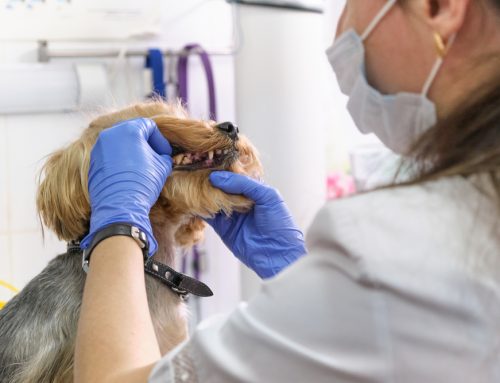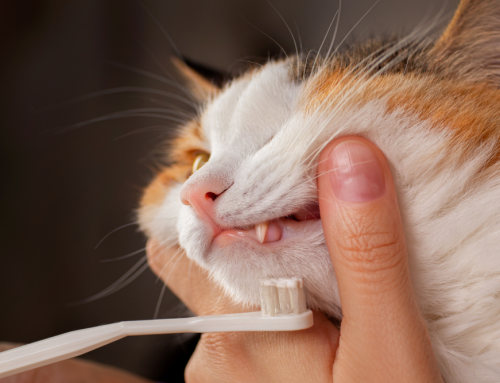Unveiling the Value of Annual Bloodwork for Pets
The Lifesaving Role of Regular Blood Tests for Pets
Preventive veterinary care is vital for maintaining your pet’s health. Regular check-ups, including annual bloodwork, are a key component of this preventive strategy. By routinely screening your pet’s blood, veterinarians can identify underlying health issues before they escalate.
Blood tests monitor the health of your pet’s organs, check for diseases such as diabetes, kidney disease, and liver problems, and ensure they are free from infections or anemia. Early detection of kidney disease through routine bloodwork, for example, allows for dietary changes and medications that can slow the disease’s progression. Understanding normal health parameters for your pet helps catch deviations early, which can be life-saving.
For more insights on the importance of regular veterinary visits, you can read Why Are Regular Veterinary Visits Important?
What Does Bloodwork Reveal?
Bloodwork typically includes a Complete Blood Count (CBC) and a Chemistry panel, vital for evaluating your pet’s health and detecting various conditions:
- CBC: Assesses the health of red and white blood cells and platelets. It can indicate conditions like anemia, infection, and leukemia. For instance, a high white blood cell count might suggest an infection or inflammation, prompting further investigation and treatment.
- Chemistry Panel: Measures electrolytes, enzymes, and chemical elements such as calcium and phosphorus, evaluating the health of organs like the kidneys, liver, and pancreas. Elevated liver enzymes can indicate liver disease, which may lead to early interventions like medication or dietary adjustments.
Understanding these tests and their results is crucial for catching diseases early, significantly impacting your pet’s health and well-being.
Understanding Your Pet’s Bloodwork Results
- Review: Discuss the results with your veterinarian. They can explain what each component means.
- Ask Questions: Inquire about any terms or conditions you don’t understand.
- Follow-Up: If abnormalities are found, follow your veterinarian’s recommendations for further testing or treatment.
The Impact of Timely Bloodwork on Your Pet’s Health
Early detection through regular bloodwork can significantly alter the outcomes of many pet health conditions. Diagnosing diseases like kidney failure and liver issues early leads to more effective management and a better prognosis. For instance, in early-stage kidney disease, treatments might include specific diets and medications that can slow the disease’s progression, maintaining your pet’s quality of life.
Timely intervention can extend your pet’s life and improve its quality, preventing severe complications such as organ failure or systemic infections. In emergencies, such as sudden lethargy or vomiting, bloodwork can quickly identify the underlying issue, allowing for immediate and potentially life-saving treatment.
Tailored Bloodwork for Different Life Stages
Pets require different care as they age:
- Puppies and Kittens: Initial blood tests establish a health baseline. CBCs can detect congenital conditions, while chemistry panels identify early organ function abnormalities.
- Adult Pets: Annual screening helps track changes from the norm. Monitoring trends can highlight issues like hypothyroidism or diabetes, allowing for early lifestyle or dietary adjustments.
- Senior Pets: More frequent checks monitor age-related diseases. Older pets are more susceptible to conditions like hyperthyroidism and chronic kidney disease, where regular bloodwork can catch subtle changes before they develop into serious issues.
For detailed information on preventive testing for senior pets, see Preventive Testing for Senior Pets – Zoetis Petcare.
Addressing Common Concerns About Pet Bloodwork
Many pet owners have concerns about bloodwork. Here are answers to some frequently asked questions:
- Is bloodwork safe? Yes, it is a common and safe procedure that provides valuable health insights. The process involves a simple blood draw, minimally invasive and handled with care for your pet’s comfort.
- How often is bloodwork needed? Annually for most pets, though older pets or those with health issues might need it more frequently. This regular monitoring allows for timely interventions.
- What if the results are abnormal? Your vet will discuss further diagnostic steps or treatment options, which could involve additional tests or starting a treatment plan to manage the condition effectively.
Your Pet’s Health in Your Hands
How Westerville Veterinary Clinic Supports Your Pet’s Health
Westerville Veterinary Clinic offers comprehensive bloodwork services as part of our commitment to preventive care. Utilizing the latest technology, we ensure accurate and timely results. Our experienced team interprets these results, providing you with a clear understanding of your pet’s health and any necessary next steps.
To learn more about our services, visit our Services page.
Preparing Your Pet for Bloodwork
Preparing your pet for bloodwork is straightforward. Keep your pet calm and follow any specific instructions from your vet, such as fasting for accurate glucose measurement. Regular visits to the vet clinic can reduce anxiety and make procedures smoother.
For preparation tips, visit our Helpful Tips page.
Community Stories and Feedback
We are fortunate to share feedback from pet owners who recognize the benefits of regular bloodwork. These testimonials reflect positive outcomes and peace of mind, highlighting early detection’s role in successful management and healthier pets.
Scheduling Your Pet’s Annual Bloodwork
Understanding the importance of regular bloodwork is key to maintaining your pet’s health. Regular testing aids early disease detection and helps track changes in your pet’s health over time.
To schedule an appointment, visit our Request Appointment page.

Navigating Pet Health Together
Join Our Community
Join our community to stay informed on pet health and participate in upcoming events. It’s a resource for sharing experiences and staying updated on the latest in veterinary care.
To join, visit our Community Page.
Continuing Education at Westerville Veterinary Clinic
Our dedication to continuing education ensures we remain at the forefront of veterinary medicine. Our veterinarians attend workshops and seminars to stay updated on the latest advancements and techniques, providing cutting-edge care.
For more on our educational efforts, visit our About Us page.
Explore More Resources Online
For additional resources on pet health, visit our Homepage. You’ll find information on nutrition, exercise, and disease prevention, designed to guide you in providing the best care for your pets.







Leave A Comment